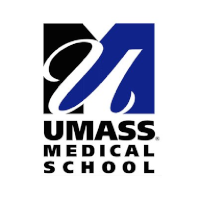
04 Sep PostDoc Positions – Human Neurodynamics
Postdoctoral Fellow Positions in Human Neurodynamics
University of Massachusetts Medical School, Worcester, Massachusetts
We have several open postdoctoral fellow positions to study normal and diseased organization of large-scale networks involved in epileptogenesis and cortical-subcortical motor control. We employ multi-modal neuroimaging methodologies as well as intracranial EEG and LFP recording of patients with drug resistant epilepsy and movement disorders. Our analytic approaches include, but are not limited to, graph theoretical analysis of large-scale neural networks, the application of novel machine learning algorithms for diagnostic and predictive classification of neurological disorders, and neural population modeling.
The postdoctoral fellows will function as part of a multidisciplinary team of neuroscientists, and neurologists at the University of Massachuesetts Medical School. Responsibilities will include the conduct of all aspects of the research protocol, such as the development, modification, and execution of data analysis, preparation of publications and scientific presentations, presentations at the national and international meetings, and mentoring the junior staff. Excellent opportunities exist for various scientific interactions and collaborations with the experts in the fields of neuroscience, movement disorders, and epilepsy as well as for participation in the extensive programs of seminars, symposia, and other relevant meetings.
The postdoctoral fellow may work on one or more of the following projects.
Epilepsy
- Abnormal patterns of brain functional and structural organization underlying the pathophysiology of drug-resistant epilepsy.
- Abnormal causal relationships within large-scale neural networks in human epilepsy (graph theoretical analysis of functional and structural MRI data).
- Genetic influences as risk factors in the development of abnormal neural activity and networks in dystonia (a combination of whole-exome sequencing and multi-modal neuroimaging data analysis).
- Primary mechanistic markers of action of a novel oral medication in patients with dystonia (a combination of neuroimaging and pharmacogenomics).
Qualifications and Skills
- PhD in neuroscience, mathematics, computer science, bioengineering, or related fields
- Exceptionally strong computational and biostatistical skills to implement and integrate the analysis of multi-dimensional imaging, clinical, and/or genetic datasets
- Solid experience in Python, MATLAB, and C
- Strong experience in the algorithmic design, mathematical models (primarily stochastic differential equation systems), and analysis and integration of dynamic systems
- Independent, self-motivated with a proven track record of productive research
- Excellent verbal and written communication skills
- Ability to work effectively both independently and in collaboration with multiple investigators
- Strong publication record and excellent academic credentials
Position Duration
- Full-time, 1-year initial contract, renewable annually contingent upon performance.
Salary
- Commensurate with experience according to the University of Massachusetts Policies and Procedures.
Deadline
- The positions are available immediately and applications are considered on an ongoing basis until the positions are filled.
How to Apply
Applications should be sent to Dr. Farid Hamzei-Sichani, farid.hamzeisichani@umassmemorial.org and should include the candidate’s CV along with a list of publications, a statement of interest in the position, and the names and contact information of at least three professional referees.
About University of Massachusetts Medical School
The University of Massachusetts Medical School (UMMS) is located in Worcester, Massachusetts, one of five University of Massachusetts campuses.
Founded in 1962 to provide affordable, high-quality medical education to state residents and to increase the number of primary care physicians practicing in underserved areas of the state. – Consistently ranked by U.S.News & World Report as one of the leading medical schools in the nation for primary care education. – Federal and private research grants and contracts of approximately $250 million in fiscal year 2018. Enhancing health and science education, ensuring community health, building a diverse workforce and enriching lives through extensive community outreach. The three UMMS graduate schools are the School of Medicine, the Graduate School of Biomedical Sciences and the Graduate School of Nursing. The School of Medicine is committed to training in the full range of medical disciplines, with an emphasis on practice in the primary care specialties, in the public sector and in underserved areas of Massachusetts. Graduate School of Biomedical Sciences students receive a broad background in the basic medical sciences and are trained in their selected specialty area in preparation for research with direct relevance to human disease. The Graduate School of Nursing offers master’s, post-master’s and doctoral degrees, providing high quality education to prepare registered professional and advanced practice nurses within nurse practitioner and nurse educator specialties and for faculty, research and other nursing leadership positions. UMMS is a world-class research institution, consistently producing noteworthy advances in clinical and basic research. In 2006 the Nobel Prize in Physiology or Medicine was awarded to UMMS professor Craig C. Mello, PhD, and his colleague Andrew Fire, PhD, of Stanford University, for their discoveries related to RNA interference (RNAi), a cellular process that offers astounding potential for understanding and, ultimately treating, human disease. Our research programs are central to the Massachusetts Life Sciences Initiative, with major funding from the $1 billion Massachusetts Life Sciences Bill signed into law in 2008. Our researchers have made pivotal advances in HIV, cancer, diabetes, infectious disease, and in understanding the molecular basis of disease. Programs and centers include the RNA Therapeutics Institute, the Gene Therapy Center, Program in Gene Function and Expression, Systems Biology and Neurotherapeutics. We invite you to learn more about why UMass Medical School is a great place to work and study.


Sorry, the comment form is closed at this time.